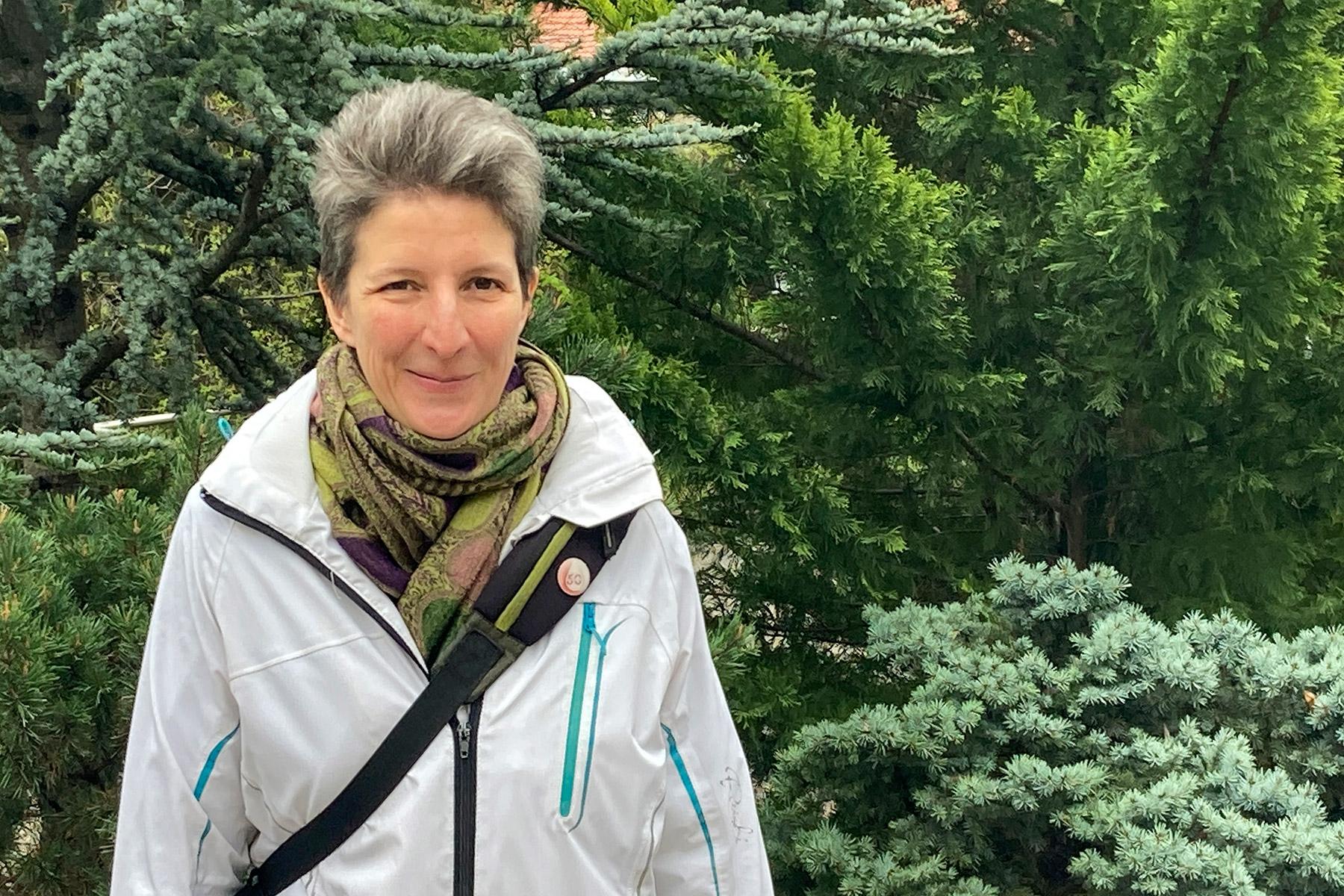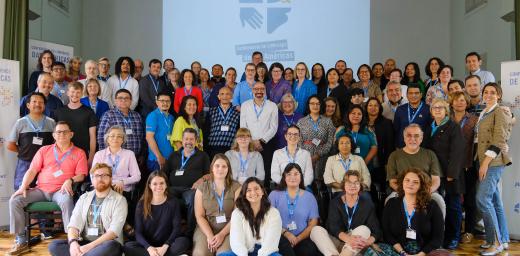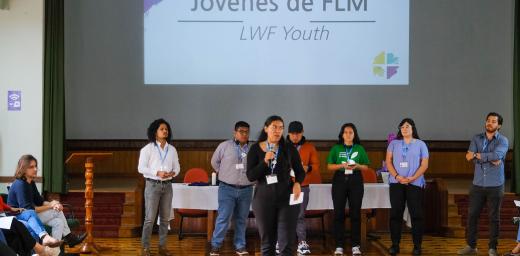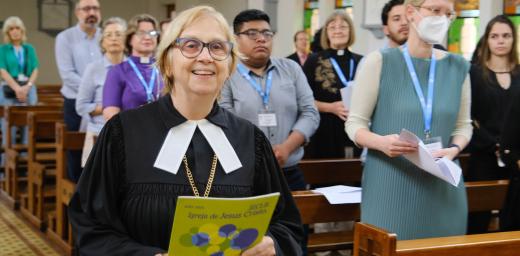Hungary: Sharing stories of credible witness in turbulent times

Kinga Marjatta Pap from the Evangelical Lutheran Church in Hungary is the Chairperson of the International Worship Planning Committee for the Assembly. Photo: private
Voices from the Communion: Kinga Marjatta Pap, Chairperson of the Thirteenth Assembly International Worship Planning Committee
(LWI) – “Bringing the global communion to Central and Eastern Europe is a strong encouragement for Lutherans living here,” says Kinga Marjatta Pap. She chairs the International Worship Planning Committee (IWPC) for the Thirteenth Assembly of The Lutheran World Federation (LWF), scheduled to take place in Krakow, Poland, in 2023.
In her church, The Evangelical Lutheran Church in Hungary (ELCH), Pap is engaged as a musician and lay leader at the local and national levels.
In this interview, she speaks about her love for church music and commitment to contributing a “credible witness in turbulent times.”
Please tell us about how you are engaged in your church.
I serve as a lay leader on the congregation board on the local level. The Evangelical Lutheran congregation of Budapest-Kelenföld is one of the largest Lutheran congregations in the capital of Hungary, a predominantly Catholic country.
Serving in a strongly secularized urban context, we are a very active congregation: We celebrate four services each Sunday and have weekly Bible studies for different focus groups. In addition, we offer scouting, children’s and youth work, and strong musical traditions in our two choirs and chamber orchestra.
Regarding my musical engagement, I am the leader of a liturgical choir, preparing a vesper every Sunday evening. On these occasions, we musically reflect on the season of the church year and the texts of the given Sunday through Gregorian psalmody, hymns, and Genevan psalms sung alternately with the congregation. Motets we sing are primarily by Lutheran authors from the early Baroque and Renaissance era to the 20th century and our time.
I teach choral singing at summer courses in our church music institute on the national level. In addition, I recently became a member of the editorial committee for the new Lutheran hymnbook, which we aim to publish in 2030.
How did music become a passion of yours?
Choirs play a central part in my life. First trained in school choirs, I joined a congregation choir at 13. That offered a fantastic opportunity to learn a wide range of choral literature – motets, masses, and cantatas. Later, I also sang in the choirs of a Lutheran secondary school and the church music institute, where I completed a church organist’s degree.
My approach to music was further formed in ensembles working with choir improvisation and applied music in alternative theatre companies and the National Theatre of Hungary. International experiences, especially from the “land of choirs”, Estonia, have further formed my musical thinking. I also play piano and organ and conduct a female ensemble of Finnish expatriates.
You are involved in the preparations for the LWF Assembly in Poland and were involved in the 2017 Assembly in Namibia before that. What – in your experience – makes these events so unique?
Experiencing our Lutheran faith in a wider context. Reflecting on God’s word and its social relevance from different perspectives is enriching personally and collectively. Especially for people coming from a minority church situation, it is very encouraging to be part of this colorful Lutheran family, a genuinely global communion.
Of course, the business part of the Assembly, with its careful discussions, listening to different voices, and formulating important messages together, is also vital for how we understand our mission for a just, peaceful, and reconciled world.
What is your vision of the contributions your church and the churches in Central Eastern Europe, in general, can make to the Assembly?
In 1984, my church hosted the last Assembly in the Central and Eastern European region in Budapest. Today, in a different time and context, bringing the global communion to the region once again is a strong encouragement for Lutherans living here. We hope that our churches will share stories of credible witness in turbulent times: The witness of Lutheran churches with a strong biblical identity, ecumenical openness, and active presence in the society.
Hopefully, the Lutheran churches in the region will also be enriched by the theological discernment of the Assembly theme “One Body, One Spirit, One Hope”, taken from Ephesians 4:4. Celebrating a Sunday service with the Assembly participants with local congregations in Poland, Slovakia, and the Czech Republic will surely be a memorable encounter for all.
What does it mean for your church, your work, you to be a part of the LWF communion of churches?
The ELCH is a founding member of the LWF. It has actively participated in the LWF’s journey by sending leaders and coworkers and continuous partnering in theological work and education. In addition, Lutheran fellowship and direct relations with international partners have been vital for us throughout the changing political regimes. At the same time, 75 years after the LWF was founded, awareness-raising is still necessary: LWF seems to be terra incognita for many church members, only meant for a few specialists. The Assembly offers a wonderful opportunity to raise this visibility.
In my experience, LWF can offer unique input on theological questions and help us as Lutherans in Hungary understand that we are one in Christ in all our diversity.
By LWF/A. Weyermüller
The Lutheran World Federation is a global body that shares the work and love of Christ in the world. In this series, we profile church leaders and staff as they discuss topical issues and set out ideas for building peace and justice in the world, ensuring the churches and communion grow in witness and strength.





